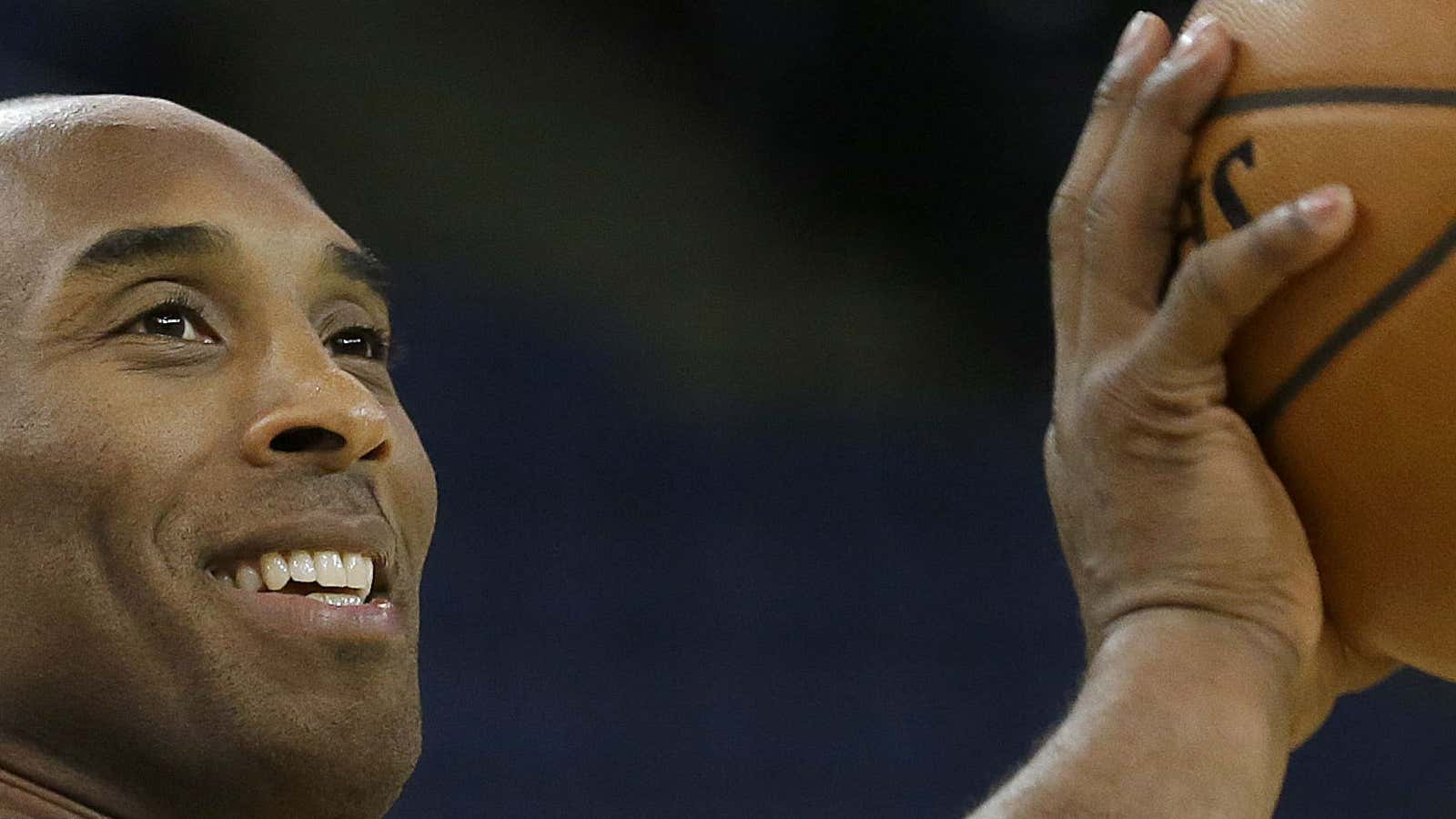Kobe Bryant, shooting guard for the Los Angeles Lakers, broke up with basketball on Nov. 29. Bryant announced his retirement from the team through poetry, using personification, apostrophe (the rhetorical device for talking to someone who isn’t there), anthropomorphism, and repetition.
The stanzas have no pattern, with some lasting one line, others three, and others as long as seven. The variance could be read as the pattern of Bryant dribbling a basketball, a graphic technique pioneered by poet John Hollander in his widely-anthologized “Swan and Shadow.”
Bryant tells the story of his love affair with the personified basketball chronologically, from a tender boy “shooting imaginary… shots” and only knowing “one thing was real: / I fell in love with you.” As Bryant grew, his love only deepened. With sexual overtones, he says that “I ran up and down every court / After every loose ball for you.” Money and prestige did not push him, Bryant emphasizes, “but because YOU called me. / I did everything for YOU.” Moving away from ee cummings’ dismissal of capitalization, the brash use of capital letters here demonstrates Bryant’s anguish and implies that the recipient of this poem has failed to listen in the past.
Bryant’s frequent use of apostrophe communicates his pain. Basketball’s silence is deafening in this poem and it appears to have no response to Bryant’s long-lasting affection for it or any shared moments together. The actions Bryant describes are one-sided and laden with sacrifice: “A love so deep I gave you my all – / From my mind & body / To my spirit & soul” or “I played through the sweat and hurt.” Bryant clearly parallels his love to that between Catullus and Lesbia. Many of the ancient Roman poet’s writings from around 60 BCE reminisce about a once-passionate love.
Using anthropomorphism, Bryant bemoans of basketball, “You asked for my hustle / I gave you my heart.” The slight alliteration of “hustle” and “heart” really emphasizes the connection Bryant and his basketball have. The bloody imagery of Bryant ripping out his heart echoes the climax of many William Shakespeare tragedies.
Unsurprisingly, Bryant’s repeated use of the word “love” shows that he has always loved basketball. Nevertheless, Bryant says “I can’t love you obsessively for much longer … my body knows it’s time to say goodbye.” This repetition of “love,” or relatedly, “heart” and “feel,” carries through the poem all the way to the penultimate line, “Love you always,” which serves as a letter closing. There are six mentions of “love,” two mentions of “heart,” three mentions of “feel,” two mentions of “deep,” and two mentions of “ball.” I counted all these words to prove I read the poem.
There is a shift towards the end of the poem from Bryant talking to basketball, to referring to them both as “we.” For example, Bryant tells basketball that “I want you to know now” that Bryant is retiring “so we both can savor every moment we have left together. / The good and the bad.” In this way, Bryant is telling basketball and all of his fans that he has had a difficult journey full of obstacles, much like that of Odysseus on the wine-dark sea. But just as Odysseus ultimately prevails because of his love for Penelope, so may Kobe’s love of basketball guide him onto his next adventure.
